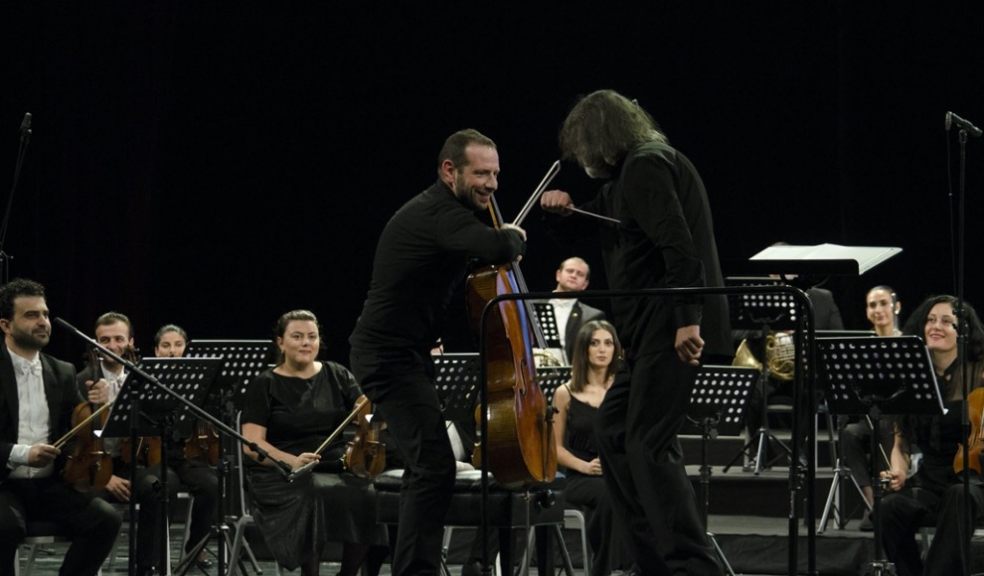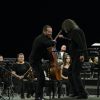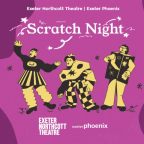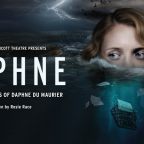
Leading the Way: Classical Music Festival Hits High Note Despite COVID-19
In July 2020 amidst restrictive controls on public events an unprecedented musical event took place in Armenia’s capital, Yerevan.
The Music-20 International Music Festival in Armenia was held between July 10-28, inviting 18 soloists and five conductors from different countries to perform at the Karen Demirchyan Sports and Concert Complex with the Armenian State Symphony Orchestra. Held at a time of understandable caution in light of the COVID-19 pandemic the festival was held in full compliance with national safety regulations, and was made available to those unable to attend in person via live broadcast.
The organisers were the European Foundation for the Support of Culture (EUFSC) represented by its President Konstantin Ishkhanov and the Armenian State Symphony Orchestra. The Artistic Director of the festival was conductor, Sergey Smbatyan.
“We realised that at a time when musicians were left without work and listeners without music we needed to do something to reverse the situation. It was impossible not to take action, but we also knew that it was impossible to hold the festival the way we had done in the past. Eventually we managed to find a way that did not contravene any safety rules whilst still making it possible to hold a great musical event" - Konstantin Ishkhanov, President of the European Foundation for the Support of Culture.
Philip Kopachevsky, Andrei Gugnin, Alexander Gindin, Gloria Campaner (Italy), Hripsime Aghakaryan (Armenia), Nikita Mndoyants and Hayk Melikyan (Armenia) performed in concerts for piano and symphony orchestra, while chamber music at the festival was presented by S. Dogadin / B. Andrianov / F. Kopachevsky and the RUSQUARTET ensemble.
Concerts for violin and orchestra were performed by Francesca Dego (Italy), Sergey Dogadin, Hayk Kazazyan and Andrey Baranov in addition to performances for soloist and orchestra featuring Alexander Ramm (cello) and Igor Fedorov (clarinet). Veronika Dzhioeva and Gevorg Hakobyan (Armenia) performed in the festival’s vocal evenings.
The Armenian State Symphony Orchestra performed under the batons of Sergey Smbatyan, Rustem Abyazov, Marius Stravinsky (Germany), Alan Kirkop (Malta), Dmitry Yablonsky and Gianluca Marciano (Italy).
Artistic Director of the Music-20 Festival and Chief Conductor of the Armenian State Symphony Orchestra, Sergey Smbatyan, describes the background to the festival: “Imagine: coronavirus, closed borders... With all the challenges facing us it was only a few weeks after the event that I fully grasped what we had achieved; Armenia had become the first country to find a format for allowing musicians to return to the stage, the first country to give musicians some hope. When I first presented the project proposal to the country's leadership, however, we received a categorical ‘no’. Following this, and in collaboration with our entire international team, we began to research the options available to us. We considered how musicians might be able to safely work and earn money at that time and how performances might be adapted to support the coronavirus safety measures in place."
The festival’s organisers had a titanic challenge ahead of them: to coordinate the arrival of 23 musicians from different countries while attempting to work round travel restrictions which included closed national borders. It soon became apparent that the only way to bring musicians into Yerevan was through Minsk.
According to Xenia Gamaris, first violinist of RUSQUARTET, “the idea of the festival in Yerevan was such a bright window for us at that time. This was to be our first concert after five months of quarantine. We were looking forward to it, we missed making music so much. We drove to Minsk by car, in fact they sent us a wonderful car. The organisation was fantastic and those managing the event were such open and helpful people. I would like to say many thanks to Konstantin Ishkhanov and Sergey Smbatyan for this festival. "
Violinist Sergei Dogadin describes an example of the logistical challenges facing performers travelling to Yerevan: “It was not easy to finalise the travel arrangements as every day more flight changes and cancellations were announced. On the day before we were due to arrive we were still looking for options regarding how to fly from Vienna as there were no direct flights to Armenia or even Minsk from there at that time. In the end the journey took more than a day, during this time one could easily fly to Australia! But it all worked out in the end and I’m very glad that I managed to make it there to perform. It was great for everyone to get together for the first time in several months and do what they love.”
In accordance with coronavirus guidelines each participant was required to be tested for COVID-19 upon arrival. Masks, gloves and sanitisers were commonplace, with words such as ‘results’ and ‘distance’ becoming all-too-familiar components to the accompanying background sound.
Conductor Marius Stravinsky: “It was a difficult time made more challenging by the constantly changing situation on a daily basis. One day it would be possible to fly, the next it would not. Fortunately the size of the stage allowed for the orchestra to sit correctly, at least, in spite of the distance regulations. Despite having not played together for some time beforehand owing to the coronavirus restrictions the musicians of the orchestra performed tirelessly and to an exceptional level. They proved themselves patient, resilient, and as always fantastically talented. They were great! We were all very tired during this time but everyone had a smile on their face. It is my belief that overcoming obstacles is good for us and helps build self-confidence as well as keeping our ego in check; these challenges keep us ‘down to earth’ so to speak. The result was that after months of being unable to meet we ended up playing nine amazing concerts. These performances were such a delight and a source of great personal inspiration to me for a long time to come!”
Speaking frankly about the coronavirus and its impacts conductor Gianluca Marciano describes how “all of my concerts had been cancelled due to COVID-19. Of course I missed the stage and live performance in general. For a conductor their instrument is the orchestra, and the isolation was terrible. When I received an invitation to conduct at the festival I was surprised and very happy. It was excellently organised, everything perfectly planned. I must thank Konstantin Ishkhanov and maestro Smbatyan for taking care of every detail of my stay and making the trip such a smooth one. I am delighted with their work and hospitality. "
Indeed, many festival participants noted that without the well-coordinated preparation arrangements and, most importantly, the courage of the organisers, it would have likely proved impossible to hold an event of this scope and scale. Music-20, as intended, became the first major international music event in the world after the removal of major restrictions.
“Our task was to show that we could continue to be a driving force for the continuation of culture even in these troubled times. It was important to us to provide impetus to culture, and live performance specifically, at a time when there was considerable resistance to this. Art is incredibly important and the challenges facing our sector require solutions. There are many reasons not to do something, but if it is both moral and important to you, then you can overcome almost anything.” - conductor Sergey Smbatyan.
When asked about his response to the festival pianist Alexander Gindin remarks that “...the time has passed, yet the fond memories remain. It was sincere, hospitable, as is customary in Armenia. I would have liked to either stay forever or return the very next day. The work of the EFSC was perfect, and I can't even imagine how an event such as this could have been created without the sheer force of personality demonstrated by Konstantin Ishkhanov. I have huge respect for both him and Sergey Smbatyan, for the opportunities they have created, their ambition, creative zeal and hard work. Nothing like the Music-20 festival occurred in any other country during that time. It was a unique musical event with its own distinctive creative and organisational components.
It is a great joy for a performer to benefit from partners who, in a crisis situation and in spite of everything, can ‘rush into battle’ as it were, investing physically, mentally, financially and emotionally and with a real desire to do everything at the highest level. To give the musicians the opportunity to express themselves and the public the opportunity to hear them.”
One interesting byproduct of the ongoing COVID-19 pandemic has been to introduce listeners to online concerts as a viable alternative to the lack of public concerts. Never before in the history of classical music has such a large amount of content appeared in the public domain with many of the largest and most renowned concert halls, opera houses and music ensembles in the world making available vast collections of musical performances (including in many cases some of their rarest offerings) to listeners online. Despite this intense competition, tens of thousands joined the festival’s live broadcasts every day, the maximum recorded numbering over 100,000.
Violinist Andrey Baranov: “We all performed after a long break, and maybe I say something unexpected now when I say that the quarantine period was perhaps even beneficial to many, and in fact not harmful. That is, you begin to appreciate things like touring, with all the hustle and bustle that entails, even more when you are prevented from participating in it. Perhaps it was the same for audiences, appreciating even more that which was suddenly taken.
Of course we had fears. We strove to take care of ourselves and loved ones at all times. After all, nobody wants to catch a virus and get stuck somewhere for two weeks, or, God forbid, harm others around them. Concerts in a pandemic are a big risk, but I don’t know any musicians who would let that risk stop them from performing. As for myself my desire to play music is stronger than ever.”
“This was the first chance we had to perform in several months. Like everyone else we had been quarantined and all of our existing professional engagements had been cancelled. It is true that many musicians were still able to teach online at least, but there was a real feeling that everyone was very much missing live performance. When the possibility to perform in the festival arose therefore we leapt at the opportunity to be involved, despite the logistical difficulties. For my own part I was only able to leave Israel thanks to a formal invitation from the Prime Minister of Armenia in support of my attendance. I think what the organisers achieved was phenomenal, managing to incorporate quarantine measures for artists upon their arrival, while still supporting daily concerts and every day bringing new soloists to the stage...I’m amazed that they did it. Konstantin Ishkhanov, Sergey Smbatyan and everyone at the EFSC did an amazing job. I would also like to briefly mention Alexey Shor, whose music I have performed many times in addition to the festival. It is always a pleasure to direct his music and this was no exception.” - conductor and cellist, Dimitry Yablonsky.
The festival programme was conceived taking into account an eclectic audience which included those newer to classical music through to connoisseurs of rare works. Famous symphonic works by Mendelssohn, Tchaikovsky, Khachaturian, Haydn, Grieg and Bizet featured as well as masterpieces of chamber music by Borodin, V. A. Mozart, Schnittke, Britten and Shostakovich.
Two days were entirely devoted to the work of modern Armenian composers Stepan Shakaryan, Eduard Mirzoyan, Tigran Mansuryan, Eduard Hayrapetyan, Gazaros Saryan, Alexander Harutyunyan and Ioann Ter-Tatevosyan.
There were also world premieres at the festival including Alexey Shor's Four seasons of Manhattan for violin and symphony orchestra, featuring Sergei Dogadin. In the violinist’s own words “In classical music there are many works dedicated to the seasons - works by Piazzolla, Vivaldi, Tchaikovsky for example. It is gratifying to see another composer join this illustrious group and it is a sincere pleasure to perform the compositions of Alexey Shor. I am drawn to their melodic components in particular, elements which are less common in some contemporary music. Alexey Shor’s music is contemporary but is written in a romantic style, and as such is arguably more intuitive not only to the performer, but also to the listener."
Pianist Alexander Gindin: “The Armenian State Symphony Orchestra has such a pleasant atmosphere, creative and light, that it's easy to phrase with them. They are wonderful guys and very good musicians. We understood that conditions were not easy with ‘coronavirus seating’ [the distance required between the musicians on stage], but when playing chamber music by Mozart, when it is assumed that the musicians are ‘bow-in-bow’, it therefore requires a lot of skill and concentration to play as one normally would in usual circumstances. Nonetheless these musicians achieved it, and under such unusual working conditions were still able to communicate effectively with each other and operate as a true ensemble. This is a testament to their hard work and time spent playing together in preparation for the festival.”
The full programme for the festival may be found on the official website, www.music20.am, and from September 24-28 the European Foundation for the Support of Culture in cooperation with the Armenian State Symphony Orchestra will present Armenia-2020, which will be held in Yerevan for the fourth time.




















